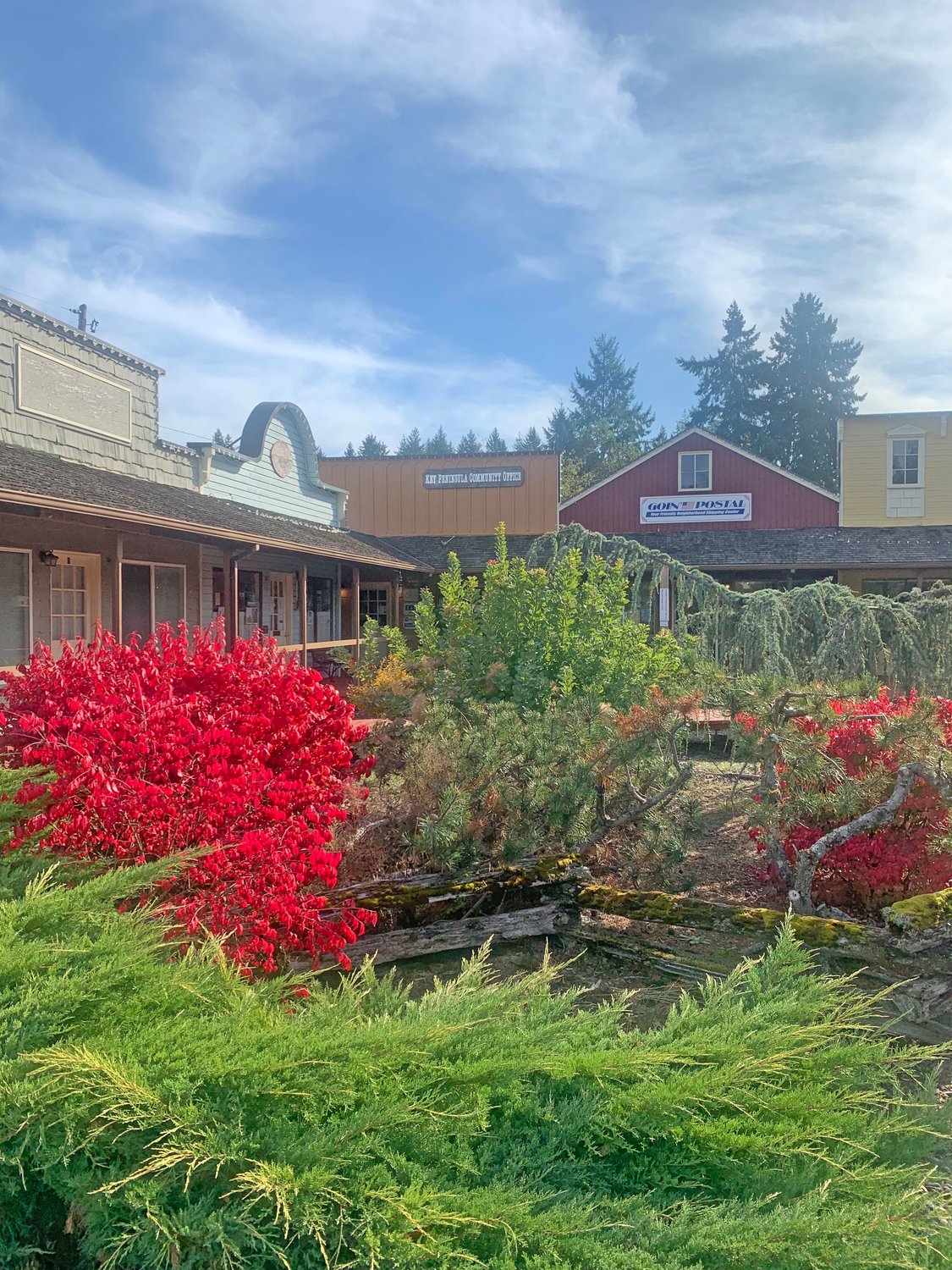
The Key Peninsula Community Council, established in 2004, is undergoing a transition. For the first time since 2017 it will no longer have a paid office manager and will depend on volunteers to keep the office in the Key Center Corral open.
Lisa Larson, the sole employee, was told that funding for her job would end Sept. 30. “My heart is with the council,” she said, but when offered a job with Safe Streets she could not pass it up.
“We plan to keep moving forward the way we are,” KPC Board President Chuck West said. “Our priorities are the broadband, continue with the Farm Tour, and keep the office open. We’ll do it through volunteers.”
Expenses for the office and utilities are currently covered by sub-renting space to others, including the Tacoma-Pierce County Health Department and County Council Chair Derek Young.
The KPC 2021 strategic plan called for a continued focus on broadband, public safety and expansion of beautification projects. Additional plans included reevaluation of the office manager position and salary, identifying funding and increasing the number of entities with a presence at the office. At its monthly meeting Oct. 13, West said that any updates will be delayed until new directors are appointed.
The KPC was established following a two-year planning process in response to frustration with lack of attention from Pierce County and a desire to encourage civic involvement. Jeff Harris was one of the early planners. “My focus was on providing a peninsula-wide forum that, while having no formal authority, could provide a forum or vehicle to articulate issues of concern and important goals to share with the Pierce County Council and Executive and the departments of Pierce County,” he said.
The KPC was designed to be apolitical with 14 directors from each of the four census tracts that comprise the Key Peninsula. The two districts with larger populations have four directors and the others have three. Initially directors were selected by an election process, but the cost of outreach was high and voter turnout was poor. In 2015 bylaws were amended — candidates were invited to apply, interviewed and appointed by the board to two-year terms. Sami Jensen, who attended the KPC Oct. 13 meeting via Zoom, said that the board is electing itself and thus is not truly representative. She suggested returning to an elective process.
KPC has programs that operate relatively independently under the KPC nonprofit umbrella, each managing their own budgets with approval by and tax filings through the KPC. Those programs include the Farm Council, KP School Bus Connects, and the KP Youth Council. The KP Partnership for a Healthy Community and the Gig Harbor & Key Peninsula Suicide Prevention Coalition started as KPC programs but are now independent nonprofits. Two KPC directors serve on the Key Peninsula Advisory Commission, and KPC works with several other local organizations to sponsor candidate forums.
Danna Webster joined the KPC in 2004 and remained a director until 2019. She said that the level of involvement in community actions has varied over the years, and she has valued the flexibility of the KPC to identify priorities, depending in part on the interests of the directors.
In 2011, after a young man was killed in a car accident on State Route 302, his mother came to speak to the KPC. Following her plea for safer roads, Webster said that KPC developed a relationship with the county and state that resulted in work on SR-302 (“State Route 302 Corridor Construction Work in Progress,” KP News, Sept. 2014), and that the stoplight and sidewalks in Key Center were also a result of that relationship.
The impact of the broadband work that Mark Cockerill is doing, Webster said, is due in part to his position as a KPC director, (“The Big Push for Broadband Equality on the KP,” KP News, Sept. 2021).
Pierce County offered financial support to help cover basic costs for KPC operations in its early years but that ended in 2008, according to Webster. Since that time fundraising for operations has been problematic. Its current income consists of office rental fees and a grant for KP School Bus Connects. In the past, as the fiscal sponsor of the Key Peninsula & Gig Harbor Suicide Prevention Coalition and the Key Peninsula Partnership, KPC has received a 5% fee from those grants. At the October meeting West said they hope to apply for an operating grant.
Webster said the KPC could survive with the rental income, volunteer-based model that West outlined for a year, but simply maintaining the space without a more substantial infrastructure and paid staff is not a long-term solution.
“I always believed and still do that the council would continue, but there would be times where not enough people would step up to participate. Even with problems it was, is and will always be a vital and needed organization,” Harris said.
At least six candidates submitted applications to become new KPC directors. Appointments to the two-year terms will be made at the November meeting.
UNDERWRITTEN BY THE FUND FOR NONPROFIT NEWS (NEWSMATCH) AT THE MIAMI FOUNDATION, THE ANGEL GUILD, ADVERTISERS, DONORS AND PEOPLE WHO SUPPORT INDEPENDENT, NONPROFIT LOCAL NEWS